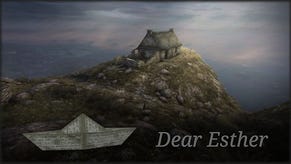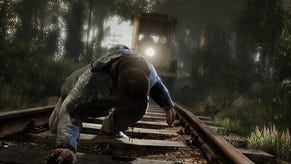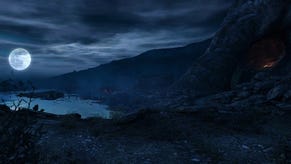2 Years After Release, Dear Esther Moves To A New Engine
Goodbye Source, hello Unity
Bad news for anyone holding out for Dear Esther 2: The Legend of Jakobson's Gold - The Chinese Room's next step for their maudlin, poetic Taking A Walk game is to remake it. Again.
In practical terms - i.e. how this will affect people who want to play the game - this is perhaps a bit of an unstory, but the shock choice to port the game from Source to Unity is a fascinating peek behind the developmental curtain. Why, after using it for the first two editions of Dear Esther, would programmer Robert Biscoe now want to leave Valve's engine behind?
In a lengthy and hysteria-free post on the matter, he says it all span out of plans to port Dear Esther to PS3, wherein they hit a wall of Source and licensing issues, originally raised by getting a third party dev to take the game to Mac and Linux. Apparently, those latter ports made a loss due to the amount of unanticipated middleware costs.
"This was all happening around the time of the departures at Valve, which unfortunately included our main contact for all things Engine related, and subsequently we spent weeks trying to find someone else who could point us in the right direction. This had a cascade effect on the whole project leading to months of delays, coupled with the contractor’s inexperience with the engine, communication problems, and then finally the PS4 release date announcement, we decided it was time to pull the plug, at significant cost to us.
We also got the underlying impression that official engine support was not long for this world, making me all the more anxious, not just about the possibility of further ports, but about the future of Dear Esther in the years to come."
The suggestion that official Source support is nearing its end raises a number of rather big questions, doesn't it? I'm not sure I feel ready to go there just yet.
In any case, Briscoe taught himself some Unity in the hope that he could "not only safeguard the future of Dear Esther, but to also clean up the Linux and Mac ports and reach a wider range of other platforms. Best of all, we’d be able to keep everything in-house, at low cost, with no more licensing or communication barriers, no more support woes and no more scouring for experienced Source Engine developers to help us."
What this means for the Esther experience is hard to say, though a couple of images suggest we're looking at something visually very similar, if not to all intents and purposes identical. Just don't expect to see it for a little while yet. "The plan is to work towards a solid, high quality, Linux and Mac build, and then eventually PC. At some point we’ll release betas for our existing Humble Store and Humble Bundle customers to evaluate and test, and when we’ve got something that reaches a quality we’re happy with, we’ll scrap the flakey old builds and look at getting everything up and running across all platforms on Steam."
Issues aplenty still, and they're resolute that they won't release anything until "100% sure it's ready."
As I say, I don't expect this'll ultimately change much at the consumer end of things, but it's fascinating/horrible to see just how convoluted things can be behind developmental doors, for all our presumptions about how games get made.









